Burning Chrome
Burning Chrome is the third published book by William Gibson, a pioneering voice in the cyberpunk genre. This collection houses ten absorbing short stories, offering readers a glimpse into dystopian futures heavily influenced by technology and corporate power. From tales of hackers navigating a digital underworld to unsettling glimpses into a world where the boundaries between man and machine blur, Gibson offers a grim yet fascinating vision of the future. Includes the short story Johnny Mnemonic, which was adapted into a 1995 film starring Keanu Reeves. This first American edition was preceded by the U.K. Gollancz edition.
Hardcover. First American Edition, First Printing. Octavo, cloth backed boards. New York: Arbor House, 1986. ISBN: 0087795780. #10479.
Fine in fine dust jacket.

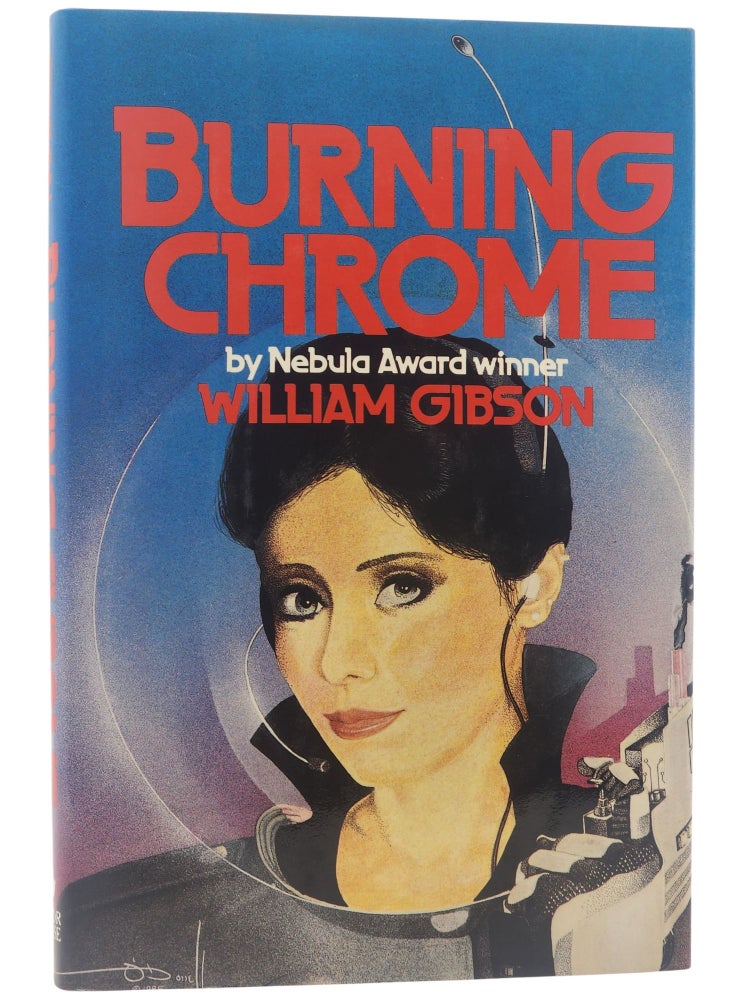

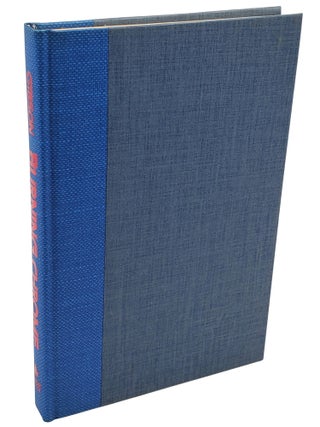
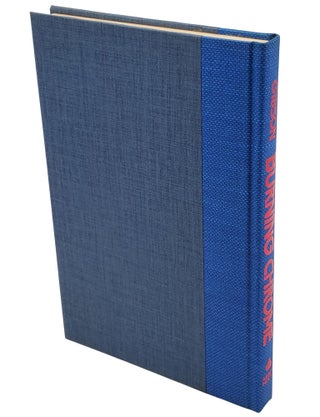
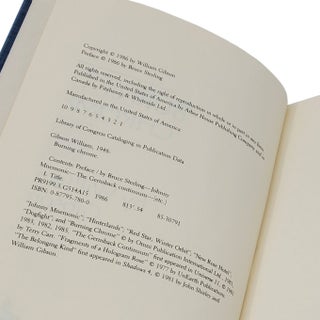
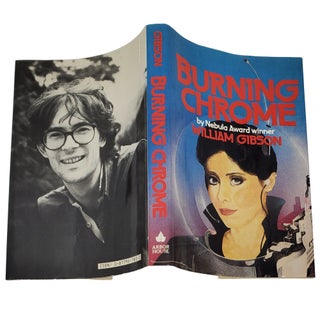
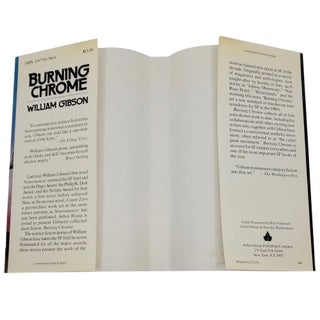
Burning Chrome is a collection of short stories by William Gibson, showcasing his adeptness at combining science fiction with elements of noir. The anthology is a vivid exploration of cyberpunk themes, presenting readers with a glimpse into dystopian futures where technology intertwines with humanity in often gritty and somber ways.
In the titular story "Burning Chrome", we navigate a world of hackers, cyber theft, and love, offering a vivid representation of a society dominated by technology and corporatocracy. The narrative shines a spotlight on the consequences of a high-tech, low-life society, illustrating the isolation and disillusionment it can foster.
"Johnny Mnemonic", another standout story in the collection, introduces readers to a data courier with a cybernetic implant that allows him to securely store and transfer information, a living embodiment of the fusion of man and machine. This tale is a dive into the world of information warfare and the commodification of personal memory and experiences. "Johnny Mnemonic" was adapted into a 1995 film starring Keanu Reeves.
Other tales like "The Belonging Kind" venture into speculative fiction, illustrating the surreal experiences of individuals who discover eerie and unsettling aspects of reality. "The Winter Market", on the other hand, explores the commodification of art and experiences in a future where memories and emotions can be traded as commodities.
Throughout the anthology, Gibson masterfully portrays grim futures where technology is both a boon and a curse, weaving narratives that explore the complexities of a society grappling with rapid advancements and the moral and social dilemmas that ensue. It's a rich exploration of cyberpunk themes, resonating profoundly with contemporary discussions surrounding technology and its impact on society.